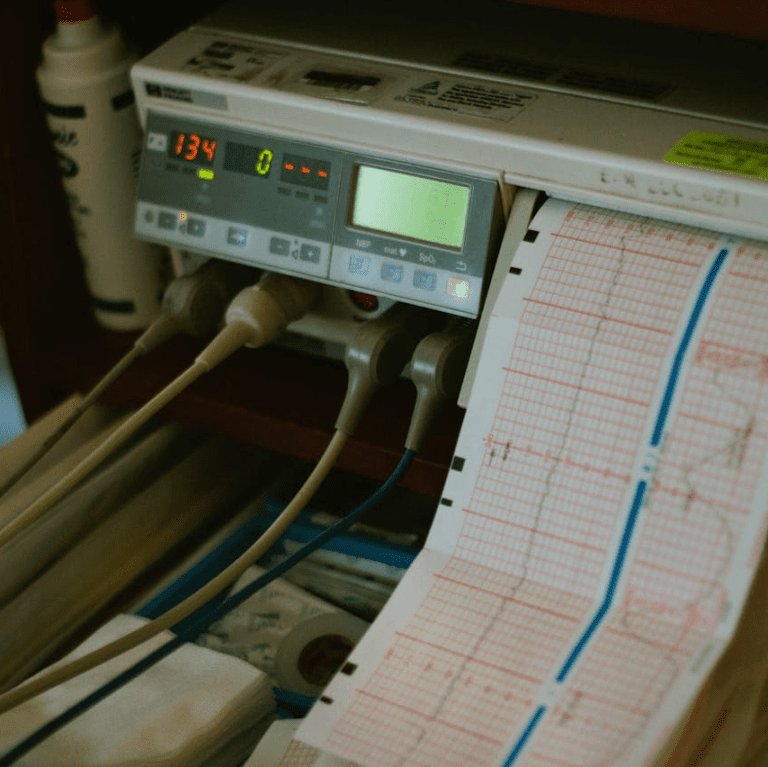Key Takeaways
- Medicare’s skilled nursing facility (SNF) care provides essential support for post-hospitalization recovery, ensuring patients receive necessary medical and rehabilitative services.
- Understanding eligibility requirements, covered services, benefit periods, and application processes helps beneficiaries maximize their Medicare benefits for skilled nursing care.
Ensuring Proper Recovery: Medicare’s Role in Skilled Nursing Facility Care After Hospital Discharge
Medicare’s skilled nursing facility (SNF) care plays a crucial role in the recovery process for patients transitioning from hospital to home. This care is essential for patients who need additional medical attention and rehabilitation to regain their strength and independence. This article delves into Medicare’s role in ensuring proper recovery through SNF care, covering eligibility requirements, services covered, benefit periods, costs and copayments, application processes, and tips for maximizing benefits.
Introduction to Medicare’s Skilled Nursing Facility Care
Medicare’s skilled nursing facility care is designed to provide short-term skilled care to patients recovering from a serious illness, injury, or surgery. This type of care includes services that require the skills of licensed professionals, such as registered nurses, physical therapists, and speech-language pathologists. The goal is to help patients recover, regain their abilities, and return to their daily lives as independently as possible.
Skilled nursing care is typically provided in a skilled nursing facility, a specialized medical facility offering a higher level of care than can be provided at home or in a standard nursing home. Medicare covers a range of services in SNFs, ensuring comprehensive care tailored to the individual needs of each patient.
Eligibility Requirements for Medicare-Covered Skilled Nursing Care
To qualify for Medicare-covered skilled nursing care, patients must meet specific eligibility criteria. Understanding these requirements ensures that beneficiaries can access the care they need without unexpected costs.
Hospital Stay Requirement
One of the primary eligibility criteria for Medicare-covered skilled nursing care is the hospital stay requirement. Patients must have a qualifying hospital stay, which means:
- Inpatient Status: The patient must have been admitted as an inpatient for at least three consecutive days (72 hours), not counting the day of discharge.
- Timing of Admission to SNF: The patient must be admitted to the skilled nursing facility within 30 days of hospital discharge. If the patient is readmitted to the hospital, the 30-day period may restart.
Medical Necessity
Medicare covers skilled nursing care only if it is deemed medically necessary. This means the care must be ordered by a doctor and must require the skills of qualified health professionals, such as registered nurses, physical therapists, or speech-language pathologists.
Skilled Services Requirement
The patient must require skilled nursing services or skilled rehabilitation services on a daily basis. These services must be provided by or under the supervision of licensed professionals and must be necessary for the patient’s recovery or management of their condition.
Medicare Part A Enrollment
Patients must be enrolled in Medicare Part A to be eligible for skilled nursing facility coverage. Enrollment in Part A typically occurs automatically at age 65 for those receiving Social Security benefits, but individuals under 65 with certain disabilities may also be eligible.
Services Covered by Medicare in Skilled Nursing Facilities
Medicare’s skilled nursing facility benefit covers a wide range of services designed to support the patient’s recovery and rehabilitation. Understanding what services are covered can help beneficiaries make informed decisions about their care and maximize their Medicare benefits.
Covered Services
Medicare covers the following services in a skilled nursing facility:
- Skilled Nursing Care: Professional nursing services provided 24/7 by registered nurses or licensed practical nurses under the supervision of a registered nurse.
- Rehabilitation Therapy: Physical therapy, occupational therapy, and speech-language pathology services to help patients regain their physical and functional abilities.
- Medical Social Services: Counseling and support services provided by medical social workers to help patients and their families cope with the emotional and social aspects of the patient’s condition.
- Medications: Medications prescribed by the patient’s doctor and administered by skilled nursing staff.
- Medical Supplies and Equipment: Necessary medical supplies and equipment, such as bandages, catheters, and walkers.
- Dietary Services: Nutritional meals and dietary counseling to ensure the patient’s dietary needs are met.
- Ambulance Transportation: Transportation to and from medical appointments if it is medically necessary and arranged by the skilled nursing facility.
Non-Covered Services
Certain services and items are not covered under Medicare’s skilled nursing facility benefit. These may include:
- Long-term Care: Custodial care or personal care services that do not require the skills of licensed professionals.
- Private Room: Unless medically necessary, Medicare does not cover the cost of a private room in a skilled nursing facility.
- Personal Items: Non-medical items such as personal hygiene products, television, and telephone services.
Understanding the Medicare Benefit Period for Skilled Nursing Care
Medicare’s coverage for skilled nursing care is structured around benefit periods. Understanding how these benefit periods work is crucial for maximizing benefits.
Definition of a Benefit Period
A benefit period begins the day the patient is admitted to the hospital or skilled nursing facility and ends when the patient has not received inpatient hospital care or skilled care in an SNF for 60 consecutive days. If the patient is readmitted to the hospital or SNF after 60 days, a new benefit period begins.
Coverage Limits Within a Benefit Period
- Days 1-20: Medicare Part A covers the full cost of skilled nursing care for the first 20 days of each benefit period. This includes room and board, nursing services, rehabilitation services, and other necessary medical services and supplies.
- Days 21-100: For days 21 to 100, patients are responsible for a daily copayment, which is adjusted annually. As of 2024, the copayment is $200 per day.
- After 100 Days: After 100 days, patients are responsible for the full cost of care unless they have supplemental insurance that covers additional days.
Costs and Copayments for Skilled Nursing Facility Care
Understanding the costs and copayments associated with skilled nursing facility care is essential for effective financial planning and maximizing Medicare benefits.
Medicare Part A Costs
Medicare Part A covers the full cost of skilled nursing care for the first 20 days of each benefit period. For days 21 to 100, patients are responsible for a daily copayment, which is $200 per day in 2024. After 100 days, patients must pay the full cost of care unless they have supplemental insurance.
Supplemental Insurance
Supplemental insurance, such as Medigap policies, can help cover costs not paid by Medicare, including copayments for days 21 to 100 and additional days of care beyond 100 days. It is essential to review the terms of any supplemental insurance policy to understand the extent of coverage provided.
How to Apply for Medicare Skilled Nursing Facility Benefits
Applying for Medicare’s skilled nursing facility benefits involves several steps to ensure that eligible patients receive the necessary care.
Initial Assessment
Patients and families should consult with the patient’s primary doctor to discuss skilled nursing care options and obtain a referral. The doctor will evaluate the patient’s condition and determine if skilled nursing care is medically necessary.
Admission to a Skilled Nursing Facility
Once the need for skilled nursing care is established, the patient must be admitted to a Medicare-certified skilled nursing facility within 30 days of hospital discharge. The facility will conduct an initial assessment to develop a personalized care plan based on the patient’s needs.
Verification of Medicare Coverage
The skilled nursing facility will verify the patient’s Medicare Part A coverage and confirm eligibility for skilled nursing care benefits. This includes ensuring that the patient had a qualifying hospital stay and meets the medical necessity criteria.
Tips for Maximizing Medicare Benefits in Skilled Nursing Facilities
Maximizing Medicare benefits for skilled nursing care involves proactive planning and informed decision-making. Here are some tips to help beneficiaries make the most of their Medicare coverage:
Plan Ahead
Discuss potential post-hospitalization needs with healthcare providers before discharge. Understanding the likelihood of requiring skilled nursing care can help in planning and securing a spot in a skilled nursing facility promptly.
Understand Benefit Periods
Keep track of benefit periods to ensure that you maximize the days covered by Medicare. If you’re nearing the end of a benefit period, discuss options with your healthcare provider to avoid unexpected costs.
Explore Supplemental Insurance
Consider purchasing a Medigap policy or other supplemental insurance to cover copayments and additional days not covered by Medicare. Review the terms of these policies to ensure they meet your needs.
Communicate with Healthcare Providers
Maintain open communication with your healthcare providers and the skilled nursing facility staff. Ensure that all necessary services are documented as medically necessary to meet Medicare’s requirements.
Conclusion
Medicare’s skilled nursing facility benefits are vital for patients transitioning from hospital care to recovery. By understanding the eligibility criteria, benefit periods, covered services, and costs, beneficiaries can make the most of these benefits to aid their recovery and enhance their quality of life. Applying for skilled nursing care involves consulting with healthcare providers, selecting a Medicare-certified facility, and verifying coverage to ensure necessary medical and rehabilitative services.
Although navigating Medicare’s skilled nursing facility benefits can be complex, the right knowledge and preparation enable patients and their families to make informed decisions about their care. By meeting eligibility requirements, understanding covered services, and knowing the associated costs, beneficiaries can effectively utilize Medicare’s skilled nursing care benefits to support their recovery journey.
Contact Information:
Email: [email protected]
Phone: 8175553456










